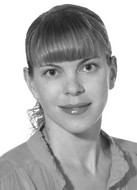Student health management model: group/ individualized training modules
Фотографии:
ˑ:
PhD, Associate Professor T.N. Shutova1
G.B. Kondrakov1
Y.O. Averyasova1
Y.B. Filimonova1
1Plekhanov Russian University of Economics, Moscow
The student health management model analyzed in the study implies prior functionality tests followed by the physical education (PE) process design recommendations. The study offers a new academic PE model with three-times-a-week PE sessions for the first-year economics students and two-times-a-week sessions for the 2-3-year economics students, with the trainings dominated by the modern fitness tools. The group and individualized training modules were designed to include special body building practices, water fitness, pilates, martial arts and traditional body conditioning practices customizable for desired competences, health conditions and gender groups; with the trainees’ progress rated by special progress tests.
The customizable group/ individualized training modules were found beneficial as verified by the sample progress in the class training tests and overall physical activity rating surveys. The model progress tests, however, showed insignificant improvements in the cardiovascular system functionality and physical fitness test rates and, therefore, we recommend the model being further excelled to include more individualized training practices with application of express test systems to test the trainees’ wellbeing and functionality rates in the process.
Keywords: physical education, students, health management, physical education improvement concepts, fitness.
References
- Andryushchenko L.B., Filimonova S.I. Fizicheskaya kultura i studencheskiy sport v novykh sotsialno-ekonomicheskikh usloviyakh Rossii: sovremenny vzglyad i tochki rosta [Physical education and academic sports in new socio-economic national situation: modern vision and growth points]. Teoriya i praktika fiz. kultury, 2018, no. 2, pp. 73-76.
- Andryushchenko L.B., Beletsky S.V., Vnukova E.Yu. et al Realizatsiya distsiplin po fizicheskoy kulture i sportu v usloviyakh uchrezhdeniy vysshego obrazovaniya [Physical education and sports disciplines implementation within higher education institutions]. Teoriya i praktika fiz. kultury, 2016, no. 9, pp. 3-5.
- Andryushchenko L.B., Kondrakov G.B., Rostevanov A.G. et al Kafedra fizicheskogo vospitaniya v ekonomicheskom vuze: sostoyanie i perspektivy razvitiya [Physical education department of University of Economics: current situation and development prospects]. Teoriya i praktika fiz. kultury, 2017, no. 9, pp. 3-5.
- Antonova I. N., Shutova T.N., Nosova A.V. et al Podkhody sovershenstvovaniya fizicheskogo vospitaniya studentov spetsialnoy meditsinskoy gruppy [Approaches to improving physical education process for special health group students]. Uchenye zapiski un-ta im. P. F. Lesgafta, 2018, no. 4, pp. 20-24.
- Beletskiy S.V. Vliyanie informatsionnykh tekhnologiy na formirovanie kompetentsiy po teoreticheskim osnovam fizicheskoy kultury [Effect of information technologies on theoretical physical education competences building process]. Vestnik Rossiyskogo ekonomicheskogo universiteta im. G. V. Plekhanova, 2015, no. 4 (82), pp. 14-22.
- Burkhanov A.I. Fizicheskaya kultura kak vazhny faktor formirovaniya zdorovya natsii [Physical culture as key factor in national health formation]. Mat. mezhdunar. nauch.-prakt. konf. ‘Sovremennye problemy i perspektivy razvitiya fizicheskoy kultury, sporta, turizma i sotsialno-kulturnogo servisa’ [Proc. intern. res.-pract. conf. ‘Modern problems and prospects for the development of physical culture, sports, tourism and social and cultural services’]. Naberezhnye Chelny, 2015, pp. 49-51.
- Vitko S.Y., Stolyar K.E., Stadnik E.G. et al Informatsionnye organizatsionno-didakticheskie tekhnologii v sisteme fizicheskogo vospitaniya studentov ekonomicheskogo universiteta [Informational and didactic information technologies applied for physical education at economics university]. Teoriya i praktika fiz. kultury, 2017, no. 9, pp. 16-18.
- Klyuchnikov S.O., Klyuchnikov M.S., Sinitsina Y.Y. et al Integralnaya otsenka sostoyaniya zdorovya vysokokvalifitsirovannykh sportsmenov s pomoschyu meditsinskikh programmno-apparatnogo kompleksa Esteck System. Metod. rekom. [Integrated assessment of health status of elite athletes using Esteck System medical hardware and software complex]. Moscow: FMBA Rossii publ., 2016, 29 p.
- Kondrakov G.B., Andryushchenko L.B., Bezveselnaya Z.V. et al Kontseptsiya formirovaniya rekreatsionnoy fizicheskoy kultury v ekonomicheskom vuze [Recreational physical culture formation concept for economic university]. Teoriya i praktika fiz. kultury, 2016, no. 9, pp. 22-24.




 Журнал "THEORY AND PRACTICE
Журнал "THEORY AND PRACTICE